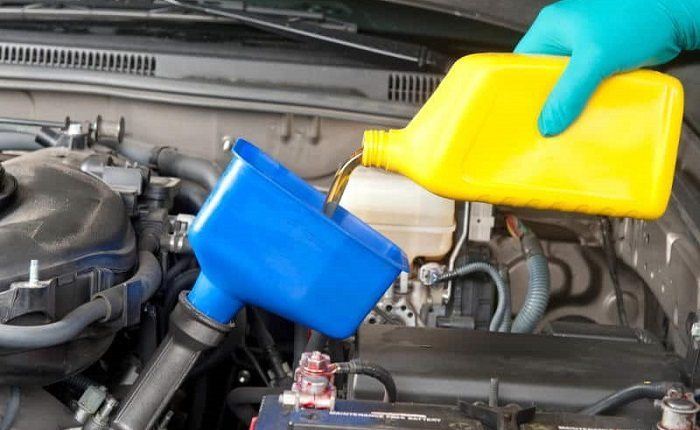by Joshua Thomas
An engine knock is one of the most common engine issues that many motorists have to deal with at some point. While in some instances it is only a minor issue, in others it can be a serious problem that can damage the engine beyond repair if left unresolved for long.
Because you should never take chances with your vehicle, you need to work on then engine knocks the soonest possible whether it is a minor or major issue causing it.
And while in some instances you might need to take the vehicle for a professional engine check and fixing, it is still possible to stop an engine knock on your own. And here we show you how to do it.
Contents

Like with any other car problem, the first thing that you need to understand even before you get to fix the issue is some of the possible causes. Knowing the causes not only makes fixing the engine knock easier, but will also allow you to prevent the problem in the first place.
Here are some main engine knock causes you need to watch out for.
Gasoline will come with varying octane levels and using something with a lower octane fuel rating than what is recommended for your particular vehicle make and model can cause a knock.
Higher octane fuels are always more favorable as it can withstand higher compression before ignition. And if your vehicle is designed to withstand these higher levels, using regular fuel often results in excess engine noise.
Spark plugs are crucial when it comes to starting a vehicle, but like all other car parts and components, they are prone to wear and tear and damages. If your spark plugs are worn out or damaged, this can also be the source of engine knock.
Also, using incorrect spark plugs can have the same effect as they will not work correctly. And if the spark plugs have a gap that is too small or too large and are not set correctly, then you might also experience engine knocking.
Burning of fuel in the engine produces a lot of carbon and over time it will start to build up in the vehicle. If there is too much carbon build-up, the fuel will not burn efficiently, which can also lead to a knocking sound when starting the vehicle.
Engine overheating can result in abnormal combustion which then causes engine knock. And the problem with overheating is that besides a knock, it can also lead to even more serious engine problems.
For any modern vehicle, the engine timing which is the point where the spark plugs have to fire up to start the car has to be very precise.
If there happens to be bad timing, which is where the spark plugs will not fire when they are meant to, there can be multiple detonations in the cylinder and hence causing an engine knock.
Note: There are three main types of engine knocking and each will have a different cause, and so you need to know how to identify it. These engine knock types are preignition, detonation and spark knock.

The kind of fuel you are using in your vehicle is one of the most common sources of engine knock, and so in many instances changing it should be enough to solve the issues.
One of the best ways to do this will be by increasing the octane levels in your fuel as this will ensure it will ignite at the right time. And here you will only need to add an octane booster to your fuel.
The minimum level recommended in many places such as the US is 87, but if you are driving a high-performance vehicle, you will need something higher than this. Your car's manual should be able to provide information on the octane levels required for your vehicle.
Your vehicle might not have any issues with the spark plugs or carbon build-up and the octane levels might be okay and you still get an engine knock. When this happens, it might be a sign that you need to clean the combustion chamber as a dirty one might be causing the issue.
Start by cleaning up the cylinder and then add fuel additives to your fuel for an even more thorough cleaning. Also, you can use an engine flush to flush out the engine.
While spark plug longevity will depend on various factors such as the vehicle type and frequency of use, it is often recommended to replace your spark plugs after every 30,000 miles.
Before replacing your spark plugs, you will first need to inspect them, and this is more so if you think they are still in good shape. And once you ascertain you need to replace them, you can take them out and put new ones. But, it is important to make sure that you get the right type and size.
You will also need to keep your vehicle’s timing in check to ensure you do not have to deal with engine knocks. And while it is always better to have a professional do this for you, it is still possible to do it on your own.
Referring to your car's manual should tell you everything you need to know about fine-tuning the timing. With a few minutes to spare over the weekend and a few tools, this should be a relatively easy task to do. And once the timing is adjusted, the knock should be gone.
If all the methods above do not seem to work, it will be a good idea to go back to the basics by checking the engine temperature given that overheating is also a common engine knock cause.
Check whether the electric fan is working well and turns on to cool the engine when it is supposed to. The temperature gauge should also be working well to ensure you know when your engine is overheating, and also remember to check the wiring for the fan.
Also, check the engine cooling system as it is crucial in maintaining the proper engine temperature. Besides functioning efficiently, the cooling system should also be filled with the proper coolant.
Lastly, to make sure that the engine temperature will not cause a knock, you also need to check the water pump and make sure the belt is still in its rightful place.
Preventing the engine knock will save you the need to ever have to stop it, and the good news is that there are different ways to do it which include the following.
An engine knock is a common problem that many motorists are faced with quite often. And besides the knocking sound being annoying, it can also be a sign that you have engine problems that need to be addressed.
When you get an engine knock, the best cause of action should be to first identify the source, which can range from the use of low octane fuel to worn out spark plugs and even a dirty combustion chamber.
And once you know the source of the problem, it should be easy to deal with it. The possible ways to stop engine knock include using a higher octane fuel or adding an octane booster to your fuel, changing the spark plugs and cleaning up the combustion chamber thoroughly.
With that said, the safest and perhaps most effective way of dealing with an engine knock will be to take the vehicle to a professional mechanic.
Sources
 |
 |
 |
 |

About Joshua Thomas
Joshua Thomas just simply loves cars and willing to work on them whenever there's chance... sometimes for free.
He started CarCareTotal back in 2017 from the advices of total strangers who witnessed his amazing skills in car repairs here and there.
His goal with this creation is to help car owners better learn how to maintain and repair their cars; as such, the site would cover alot of areas: troubleshooting, product recommendations, tips & tricks.
Joshua received Bachelor of Science in Mechanical Engineering at San Diego State University.